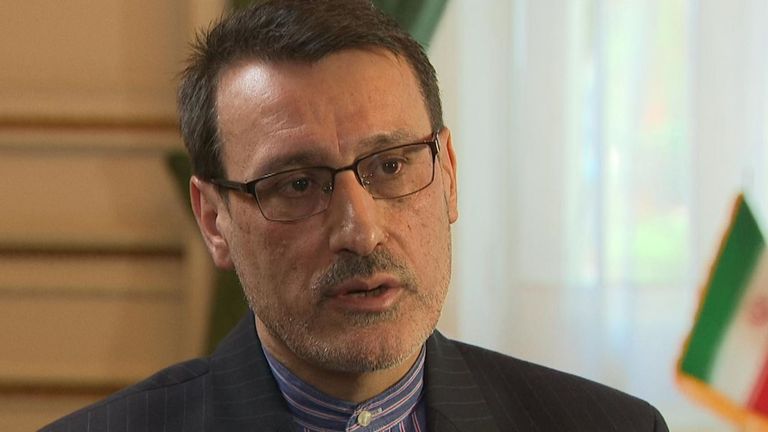Alwaght- Iran’s recent reduction in commitments under the 2015 nuclear deal was a “wake-up call” for other parties, the Islamic Republic’s ambassador to the UK said, warning European signatories of a crisis over the collapsing accord.
Hamid Baeidinejad told a group of UK mainstream media representatives on Thursday that Tehran’s move this week to inject gas into centrifuges at its Fordow plant was “adopted as a warning to the other sides and the international community that we are at a crisis.”
A former member of Iran’s nuclear negotiating team during the marathon talks that culminated in the Joint Comprehensive Plan of Action (JCPOA), Baeidinejad said Iran will continue to increase its nuclear activity every two months unless it receives the economic benefits it was promised when it signed the nuclear deal with world powers.
“We hope this warning would encourage all other parties to implement their commitments. … Now it depends on the other side — if they don’t take this warning seriously … we will be in a very difficult situation,” he warned.
The nuclear deal was reached in Vienna in July 2015 between Iran and the P5+1 group of states, the US, Britain, France, Russia, and China plus Germany. It lifted nuclear-related sanctions against Tehran, which, in turn, voluntarily changed some aspects of its nuclear energy program.
The US, however, left the accord last May and reinstated its unilateral sanctions against Iran. The European deal partners, meanwhile, have bowed to Washington’s pressure, failing to honor their contractual obligations to protect Iran’s economy in the face of America’s “toughest-ever” bans.
In his Thursday comments, the Iranian ambassador dismissed European arguments that it is difficult for them to circumvent the US sanctions.
“They have taken commitments that are defined in very clear terms and they should be able to implement those commitments,” Baeidinejad said.
In reaction to Washington's withdrawal from the deal and Europe’s inaction, Tehran has reduced its commitments under the JCPOA in four phases, the latest of which was the resumption of enrichment at Fordow nuclear facility.
The fourth step, the injection of uranium hexafluoride (UF6) gas into centrifuges at Fordow, is believed to be the most important step so far, and a serious warning to other parties.
‘More serious steps to come’
Mohammad Saeidi, a former deputy head of the Atomic Energy Organization of Iran (AEOI), says Tehran has even more important measures to take if other parties fail to fulfill their commitments.
“I believe in case of other signatories’ failure to live up to their commitments, we have other very important measures which they will witness when the time for the next steps arrives,” he told Tabnak news website, stressing that the next steps will be more important than the fourth one.
“If the nuclear issue of Iran matters to Europeans, they must make their decision whether they want to preserve the accord or they really want to leave it and not fulfill their commitments,” he added.



























